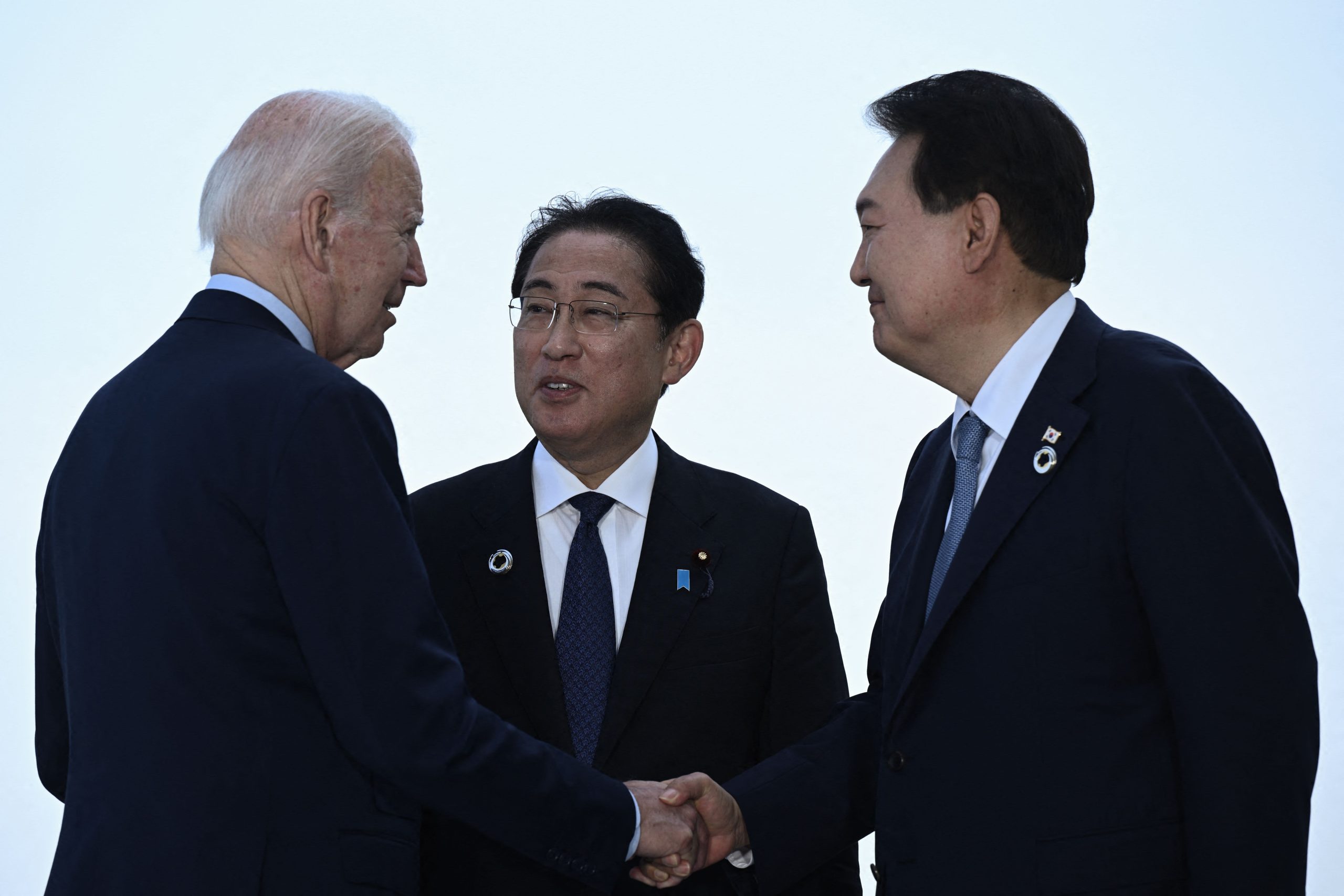The upcoming state visit to Washington between President Biden and Japan’s Prime Minister Fumio Kishida carries weight beyond ceremonial pomp, overshadowed by the specter of political insecurity for both leaders. President Biden, grappling with re-election pressures against his predecessor, and Prime Minister Kishida, facing plummeting approval ratings amidst a political scandal, seek to fortify their countries’ alliance to endure potential leadership transitions.
Scholars like Narushige Michishita underscore the necessity of cementing the U.S.-Japan alliance to withstand leadership changes, emphasizing the imperative to safeguard their ties irrespective of individual leaders. Yet, the specter of a return to the White House by Donald Trump looms large, with Japanese circles referring to scenarios like “moshi Tora” (“if Trump”) or even “hobo Tora” (“probably Trump”), anticipating potential shifts in American foreign policy.
Biden and Kishida (Credits: NBC News)
The perceived instability stems largely from Trump’s unpredictable behavior and his transactional approach to international alliances, prompting Japanese officials to brace for possible fluctuations in U.S. foreign policy. Conversely, on the Japanese front, despite uncertainties surrounding Kishida’s leadership future, the ruling party’s continued governance assures relative policy continuity, minimizing the likelihood of significant shifts in Tokyo’s commitments.
Even in the face of potential leadership changes and political uncertainty, both nations recognize the paramount importance of preserving the robust U.S.-Japan alliance. As they navigate domestic challenges and the geopolitical landscape, Biden and Kishida aim to ensure the enduring strength of their countries’ relationship, shielding it from the vagaries of shifting leadership dynamics.
